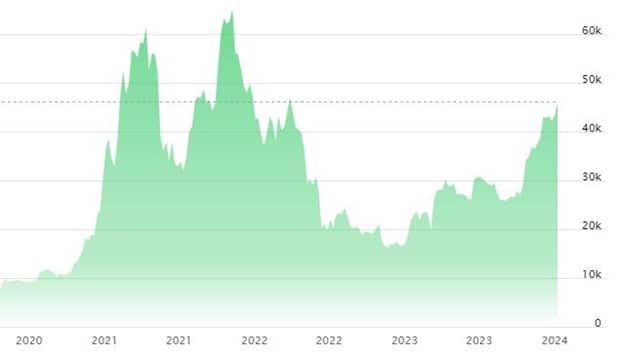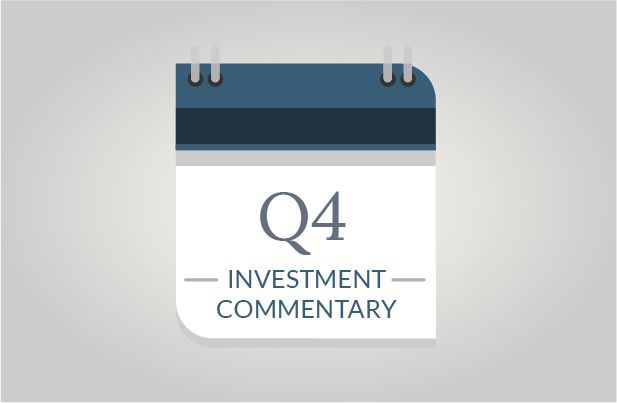Bitcoin is returning to the spotlight after the Securities and Exchange Commission (SEC) recently approved Exchange Traded Funds (ETFs) that hold Bitcoin futures. Investors are likely to see a marketing push promoting new Bitcoin ETFs. But are they appropriate for you?
We continue to see Bitcoin as a speculative investment. This is due to the fundamental challenges rationalizing the valuation of the coin, its volatility, and attempt at government regulation.
What Changes with SEC Regulation?
The SEC’s regulatory oversight of ETFs might allay the concerns of those who shied away due to the unregulated nature of Bitcoin. But keep in mind the newly approved funds don’t hold actual Bitcoin, but futures. Futures are contracts to buy a commodity in the future at a set price. In this case, Bitcoin contracts. This is a form of guessing “future” prices of Bitcoin. Bitcoin itself is still unregulated even though the ETFs are regulated.
Why the Interest in Bitcoin?
We think there is a lot of hype and FOMO baked into it, but there are some high-profile participants in this space that may be feeding the frenzy. For example, in early 2021 Tesla purchased $1.5B of Bitcoin and toyed with the idea of accepting it for payment by consumers. Announcements like this help increase the belief that Bitcoin is becoming more mainstream and accepted.
Bitcoin’s periods of strong gains have attracted attention. As shown below, Bitcoin’s price rose from around $20,000 to $60,000 in late 2022. However, it then plummeted close to $20,000 at the beginning of 2023. As with any volatile position, it’s fun to discuss when the price is rising, but not as much when the price falls off a cliff.
The Price of Bitcoin 2020-2024 [1]

Is Bitcoin a Currency?
Bitcoin has not yet achieved the characteristics most desirable of a currency, including low volatility and widespread acceptance. Furthermore, Bitcoin is decentralized from the traditional banking system, meaning there is no central bank or government authority to regulate it. Regulation is partially why there is often confidence in traditional currencies. This is not to say there will never be a digital currency with widespread acceptance. In fact, many central banks, including the U.S. Federal Reserve, have actively looked into this very topic.
How Is Bitcoin Taxed?
The taxation of Bitcoin in the U.S. is a significant factor relative to its potential as a currency and your investment interest. The IRS currently views Bitcoin as property, rather than a currency. Therefore, any sale or transaction is subject to capital gains taxes. This includes paying taxes when using Bitcoin to purchase something.
How To Evaluate Bitcoin’s Fundamental Valuation
Much of Bitcoin’s valuation has been speculative versus based upon true investment fundamentals. The fundamental valuation of an investment should be based upon current profitability and growth potential. Bitcoin’s current limited use as a currency and its challenges in expanding as a currency distinctly impact its future price and growth potential. These risks should be considered relative to any investment decisions.
Should I Own Bitcoin?
As with all areas of the investment world, we continue to monitor this area. As of current, SageVest does not incorporate Bitcoin or cryptocurrencies in client portfolios. We believe that the risks outweigh the return potential. For investors who truly want Bitcoin investment exposure we recommend viewing Bitcoin as a “play” investment and limiting your purchase to an amount you can afford to lose.
SageVest proudly serves as a fiduciary investment and wealth advisor. Our fiduciary responsibility obligates us to place your best interests at the forefront of our recommendations, including investment decisions. Please contact us to learn more about our services.
Reference
[1] https://www.investopedia.com/articles/forex/121815/bitcoins-price-history.asp




